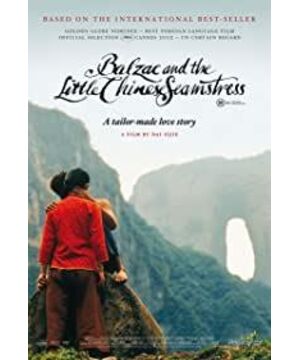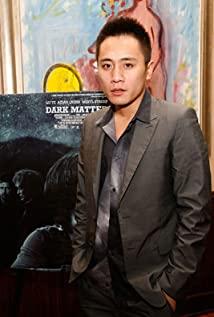After watching it, you can understand why this film is neither introduced when talking about the Cultural Revolution, nor is it mentioned when reading Balzac. It also seems understandable why the film can be considered a success in France. It does not belong to the concept and thematic film that the Chinese people can accept smoothly. Are you talking about literature? Cultural Revolution? Is it love? Among them, there is love, and the type of film is also classified as love, but love is undoubtedly only a part of human nature, almost just like eating and dressing, at least not the object of this film's intense expression. This film is literary and poetic, expressing a larger literary and human motif than literature, revolution, love, etc. It is an enlightening film.
In the film, two educated youths go to the countryside, as if two fire thieves came to a savage world. The people there are simple yet ignorant, kind and violent, neither art nor technology. Just as Christian missionaries use the language of Confucianism and Taoism to preach, and immortals always take the form of human beings to give pointers to the world, every kind of wisdom needs some bridges to spread, and they also make some witty disguise for themselves. So there is "Mozart Missing Chairman Mao", and there is an explanation that there is indeed a chicken in the alarm clock. The response of the villagers was simple. Regardless of the author or not knowing the musical instrument, they were simply attracted by the music and gathered around the wooden house to listen (unlike modern people who deliberately listen to some classical and memorize two poems and arty); they were curious about what the alarm clock was. Just take it apart.
It is not so much that the educated youth were sent to the countryside for transformation in ordinary works of the Cultural Revolution. In this film with a sense of alienation from the times, two educated youth secretly open the entire mountain village. They told foreign novels as revolutionary films, using dentists and book techniques to cure diseases. In the enlightenment process, the little tailor is a typical example. She herself is a beautiful and smart girl. It was she who made them stop thinking about escaping from such a backward village, and instead raised the idea of wanting to preach. Love is the fuse that spreads fire. It just so happens that both of them love her (an inevitable coincidence), one is more physical and the other is more spiritual. Since then, this ignorant little girl has also learned from one person. The love of the body, and then understand the pain, and then learn the love of the soul. Of course, this is something.
In fact, women always play such a role, just as Eve persuaded Adam to eat the apple from the tree of wisdom, it was the little tailor who encouraged the two educated youths to steal the box of foreign novels. Very western model. The one who has acquired wisdom does not own or control it. Then this wisdom will break all the dull existing worlds. For example, they read the story of "The Count of Monte Cristo" to the tailors, and a new fashion style was blown in the mountain village. At the same time as beauty was awakened, humanity was awakened. This wisdom must eventually lead to leaving home, so the little tailor left, and it was not one of the two men who affected her, but Balzac, the fruit of wisdom.
Art doesn't have to answer any questions, why should I reflexively reflect on what will happen to the little tailor after he leaves? She is every one of you and me who left the Garden of Eden. When the Three Gorges Project was built, when our hometown was buried by our own hands, there was only one lantern, and that collective memory or cultural tradition vaguely told our common past. Every moment, there is another little tailor, our voice at the starting point (in the cave), and our original memories underwater.
View more about Balzac and the Little Chinese Seamstress reviews










